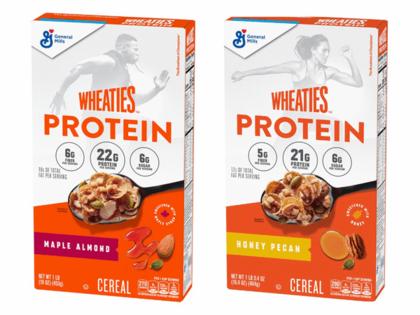Food companies keep pushing protein. How much do we actually need?
Published in Business News
Wheaties is getting yoked.
The Breakfast of Champions is releasing a new line of cereals with more than 20 grams of protein per serving "to serve today's modern athletes who are striving to be better everyday," General Mills recently announced.
But it's not just athletes looking to boost their protein intake, as the grocery baskets of many American consumers will show. Protein-enhanced foods now include the usual bars and shakes as well as cereals, pastas, dairy products and pancake mixes made by a number of food companies.
Yet while protein is an essential nutrient, everyone has different needs — and more is not always the right answer.
"I don't think it's necessarily an all-bad thing, but the problem is people are using these protein products as their main source of protein," said Brenda Navin, a registered dietitian and CEO of Minneapolis-based Launch My Health. "The rule of thumb is whole fresh foods first for protein, then those convenient protein products should be used on an as-needed basis."
It's quality over quantity, says registered dietitian and University of Minnesota professor Joanne Slavin.
"Most people don't need more protein, but you can't ignore it," Slavin said. "You just can't add protein powder to your diet and expect to gain muscle. Any extra calorie can make you fat."
The popularity of protein also cannot be ignored — 67% of consumers say they are looking to add more to their diet, according to the International Food Information Council, and a third of consumers say protein content is an indicator of health. Google searches for "high protein" have surged in recent years.
So food companies are cashing in. Those high-protein Wheaties, boosted with gluten and soy, will retail for $8.99 per box.
"Consumers want meals and protein products that prioritize convenience and provide shortcuts," according to a recent Cargill report on protein. "This mindset affects every aspect of mealtime: meal planning, grocery shopping, product selection, food storage, meal prep, eating and clean-up."
...continued
©2024 StarTribune. Visit at startribune.com. Distributed by Tribune Content Agency, LLC.







Comments